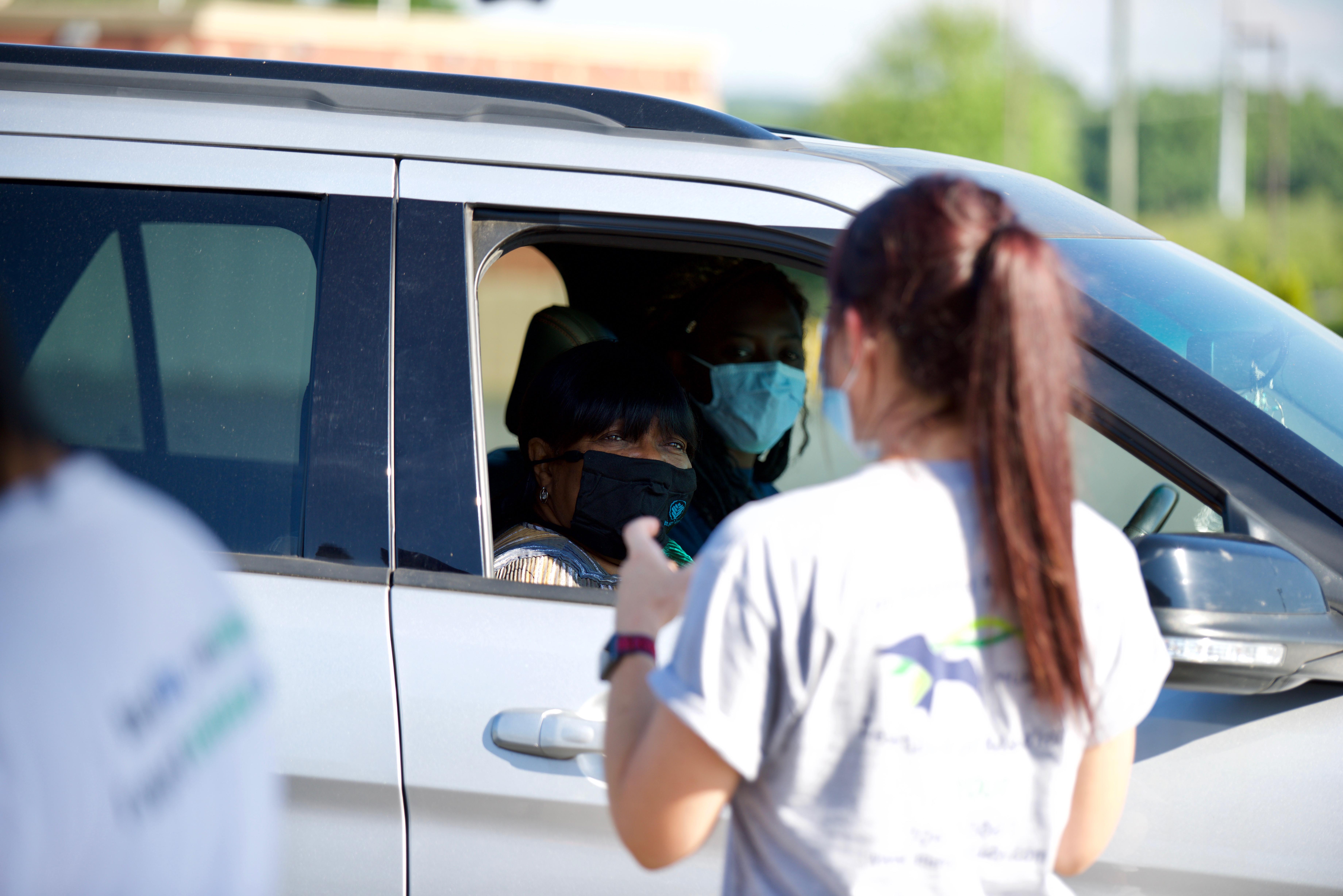Duke University study begins drive-thru COVID-19 testing of participants
Published 5:00 pm Tuesday, July 28, 2020
By Carl Blankenship
carl.blankenship@salisburypost.com
KANNAPOLIS — Some participants from the existing MURDOCK health study at the N.C. Research Campus are now being studied for COVID-19 infection and immunity.
MURDOCK, a broad study on health in North Carolina, follows 12,500 people and is conducted by the Duke Clinical and Translational Science Institute. More than 1,300 of those people are now part of a smaller cohort that is examining the health effects of COVID-19. Some of those participants are taking at-home COVID-19 tests in a drive-thru format near Duke University’s facility in the North Carolina Research Campus in Kannapolis.
Participants drove up to tents to receive testing packets and information from staff on Tuesday. The participants performed nose swabs on themselves while being observed and staying in their cars.
The testing site, which was only for study participants and not the public, was set up to observe participants and give instructions for the first time they perform the test. The patients can then administer biweekly follow-up tests on themselves at home.
Participant Wendy Mateo-Pascual said the swabbing was not entirely unpleasant. Mateo-Pascual, a Latinx community advocate, said she is happy to try and be part of the solution and do something that could help people be healthy.
Zenobia Fleming, another participant and a retired housekeeper, said the experience went smoothly.
Fleming said she is involved with the study because she thinks people need to be more aware of COVID-19. She said there is some peace of mind that comes from knowing her COVID-19 status.
“This is not a game,” Fleming said. “It’s nothing that you should take lightly.”
Participants will also undergo periodic blood draws to test for the presence COVID-19 antibodies. Antibodies are the natural immune response to viral infections.
MURDOCK Principal Investigator Dr. Kristin Newby outlined some goals of the COVID-19 study. One is to determine the durability of COVID-19 immunity, meaning the length of time someone would typically stay immune after contracting the disease.
The study also wants to examine rates of asymptomatic community spread. Newby said spread from people who do not have symptoms of the disease could make up 3% to 10% of infections above the current rate.
Another issue is seasonality. There are new flu shots each year to protect people against the latest strains that cause the illness. Newby pointed to the common cold as another viral infection which is impossible to develop durable immunity to due to the number of viruses that cause the illness.
On the other end of the spectrum are viral diseases like polio and measles. Typically once immunity is established for those diseases, it will last someone’s entire life.
“Those are pretty durable immunity, whether you are infected or vaccinated,” Newby said.
How long immunity to COVID-19 lasts and if it will require a seasonal vaccine is an open question.
“We really don’t know,” Newby said, adding best estimates are at least six months.
There are concerns immunity starts to wane after that, she said.
Newby said researchers believe everyone who is infected with the disease develops antibodies. Among other things, the Duke study would allow measurement of antibody levels over time if someone becomes infected.
Newby said she never expected to be working on a project concerning a worldwide pandemic of this scale.
“I expect most of us would say we never expected to see anything like this in our lifetime,” Newby said. “This is thoroughly unprecedented. It was not even really on my radar, the things we might be doing through the MURDOCK study, until the need arose.”




